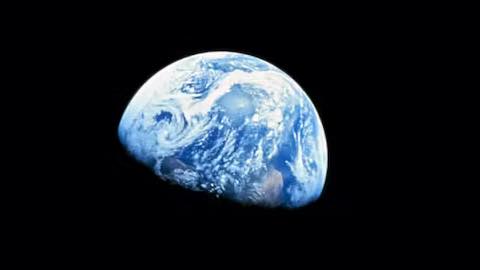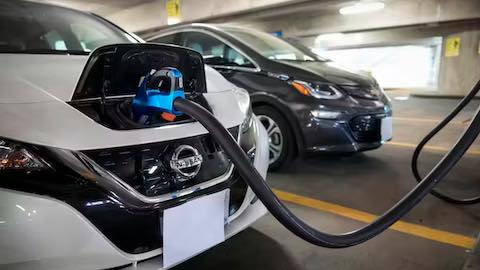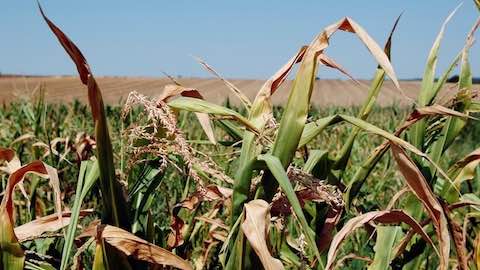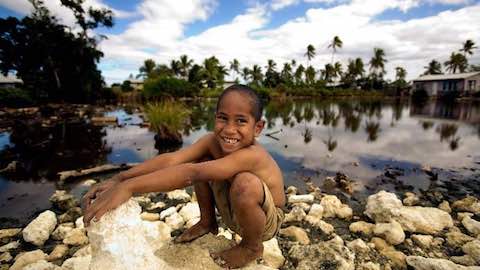- MENU
- HOME
- SEARCH
- WORLD
- MAIN
- AFRICA
- ASIA
- BALKANS
- EUROPE
- LATIN AMERICA
- MIDDLE EAST
- United Kingdom
- United States
- Argentina
- Australia
- Austria
- Benelux
- Brazil
- Canada
- China
- France
- Germany
- Greece
- Hungary
- India
- Indonesia
- Ireland
- Israel
- Italy
- Japan
- Korea
- Mexico
- New Zealand
- Pakistan
- Philippines
- Poland
- Russia
- South Africa
- Spain
- Taiwan
- Turkey
- USA
- BUSINESS
- WEALTH
- STOCKS
- TECH
- HEALTH
- LIFESTYLE
- ENTERTAINMENT
- SPORTS
- RSS
- iHaveNet.com: Environment
Countries
Argentina | Australia | Austria | Benelux | Brazil | Canada | China | France | Germany | Greece | Hungary | India | Indonesia | Ireland | Israel | Italy | Japan | Korea | Mexico | New Zealand | Pakistan | Philippines | Poland | Russia | South Africa | Spain | Taiwan | Turkey | United Kingdom | United States
Cities
Atlanta | Baltimore | Bay Area | Boston | Chicago | Cleveland | DC Area | Dallas | Denver | Detroit | Houston | Los Angeles | Miami | New York | Philadelphia | Phoenix | Pittsburgh | Portland | San Diego | Seattle | Silicon Valley | Saint Louis | Tampa | Twin Cities
- World on the Edge of Collapse?
- Devastating Effects of Pollution
- Supermarkets: Cut Waste or Else
- Electric Mobility Has a Long Way to Go
- This (Film) Changes Everything
- Great Barrier Reef Suffering
- The Climate Change Debate is Over
- Challenging Trump on Climate
- Despite Trump, Climate Action Goes On
- Food We East Makes Climate Change Worse
- France's Waste-Not Experiment
- How Climate Change Affects Health
- Can't Afford to Ignore the Climate
- Cities With the Greenest Commutes
- Indigenous Solution to World Hunger
- Wrinkles in the Climate Deal
- The Geopolitics of Cheap Oil
- Trying a Fossil Fiend
- Godwin's Law May Actually Apply
- A Fossil-Fueled Fantasy
- 6 Countries Dictate Planet's Future
- The War on Alaska's Pristine Wilderness
- Tax Wall Street
- Making Green Cool Again
- David & Goliath in the Amazon
- NASA Warns of 'Megadroughts'
- Why Whales Beach Themselves
- Termites Fight Climate Change
- Road Salt Worse Than You Think
- GOP Pleads Ignorance
- Technology & Transformation
- Ecuador: All You Need Is Love and Oil?
- Asian Pollution & U.S. Weather
- The Keystone Pipeline & Greenhouse Gases
- Rare Earth Mining in Europe
- Cities Unprepared for Population Flood
- Drugs in Our Rivers
- This Climate Deal Saves the World
- The Problem of Climate Change Denial
- Green Bonds Are Flourishing
- Climate Change Reality in 5 Charts
- Climate Change & Middle East Security
- Hooked on Conservation
- Dangerous, Dirty Water
- Organic Farms Sacrifice Sustainability
- Ecological Security
- New Reform a Toxic Waste
- Drivers of Change in Governance
- Can a Green Asia Lead the World?
- Bad News for Sea Level Rise
- Energy Risks & Ideology
- A Green-Energy Founding Father
- The Pope's Encyclical on Climate
- We're All Taking Dirty Pictures
- Faking It While the World Burns
- Virginia Is for Dirty-Energy Lovers
- Climate Security in the Trump Era
- Our Growing Carbon Emissions
- Global Warming Triggered Syria War
- Round-the-World Solar Flight
- 10 Extreme Weather Facts
- Gas-Guzzlers On Road To Extinction
- China Pulls Pollution Documentary
- Forging Our Future
- Green Believers
- Reality of Climate Change
- Arctic Not Cold Enough for Polar Bears
- Opinions Split on Fracking
- Why You Can't Throw Away Batteries
- The Clean Energy Mineral Rush
- China's War On Pollution Means Little
- Emerging Markets Lead On Going Green
- How Thirsty is Our Food?
- Big Oil Can't Go On Like This
- EV Charging Stations in the U.S.
- Portland an Example for the World
- 'Green' Mutual Funds Bounce Back
- Anti-Pipeline Movement Gathers Steam
- Brazil's Battle To Save The Amazon
- Environment & Anthropocene
- My Oily Heirloom
- Climate Change & Adaptation
- Adjusting to Climate Change
- A Curbside Crisis
- How Sky-High CEO Pay Pollutes
- Scarcity & Anarchy in China
- Promising News for Global Warming
- Oil Spill Hits Close to Home
- Climate Denial Syndrome
- The Hottest Year On Record
- Scarcity Upending World Politics
- Humanity's War on Wildlife
- New York City Sea Level Rises
- Alaskan Glaciers Disappearing
- Leather Sludge New Bio-Fuel Source
- Why the Ocean is Turning More Acidic
- The Glaciers Are Talking to Us
- Bald Eagles Nesting in New York
- Doomsday Clock & Climate Change
- Sea-Level Accelerating Faster
- Manhattan Size Glacier Breaks Apart
- Plastic Bags: A Bad Habit
- The Myth of the Wild
-
When we talk about competing for scarce resources, we still tend to focus on topics such as oil. That's got to change. Food and the resources needed to produce it are now the greatest security challenge that most states face
-
In order to improve our environmental security, should we think of water, food, energy and climate in nexus-like ways? While 'nexus thinking' promises to reduce waste and inefficiency, it could also heighten inequality and the potential for violent conflict
-
'We cannot afford to lose another decade.' There's more darkness in this quote than intended. I winced when I read these words of Ottmar Edenhofer, co-chairman of the committee that wrote the latest UN Intergovernmental Panel on Climate Change IPCC report
-
The cult centered on 'global warming' alarmism is getting hot under the collar. People seem to have stopped paying attention and polls show 'climate change' barely registers on a list of voters' concerns
-
Cullen Hendrix and others have no doubts -- water scarcity caused by climate change can lead to outbreaks of interstate violence. However, their research also suggests that if such shortages are shared ones, a lack of rain may actually have conflict-inhibiting effects
-
You just can't out-gloom an environmentalist. The Atlantic invited some luminaries to answer the question 'How and when will the world end?' Some were funny. Others simply plausible. But only environmentalist Bill McKibben could be a killjoy about the apocalypse itself
-
Our author gets admiring glances as he rides the greenest bicycle. The bicycle is a clean machine, loved for its environmentally friendly characteristics as much as the refreshing blast of air that assaults the face of its rider
-
Colorado's wildfires and the record heat waves should sober up some climate change doubters
-
The greenwashed economy threatens our ability to pursue sustainable development
-
Earth hovers on the brink of ecological catastrophe -- actually, 20 years closer to the brink than it was at the first global climate summit
-
With high and volatile commodity prices, forward-looking companies sense that the economics of production may be about to alter again
-
Corporations try to appear as though they have solutions to environmental problems while, in reality, they are continuing the policies that cause the most environmental degradation
-
Don't bank on a new 'green economy' to solve our climate challenges
-
The ever-increasing quantity of emissions could render moot the aim that has guided international climate diplomacy for nearly a decade: preventing the global temperature from rising by more than two degrees Celsius above its preindustrial level
-
In a victory for common sense, Canada has become the first country to bail on the Kyoto Protocol before the nearly $7 billion in noncompliance costs comes due next year
-
GOP lawmakers are howling to overturn the EPA's mercury regulations
-
Himalayan glaciers are melting faster than ever, according to recent observations by a prestigious climate watchdog body
-
High up in the Himalayas in Nepal is a glacial lake that has been growing in length by 60 metres a year, threatening to burst its banks as rising temperatures in the region cause the glacier that feeds it to melt more quickly
-
Brandishing a plea for developed countries to make good their promises to reduce carbon emissions, 300 farmers, youths and activists took the scenic route to the COP17 conference in Durban, travelling more than 7,000km from Burundi in 17 days, through 10 eastern and southern African countries, aboard a convoy of buses draped in various national flags
-
Concerns about climate change, as well as growing demand for electricity, led many governments to reconsider their aversion to nuclear power. But the movement lost momentum when the earthquake and the massive tsunami it triggered devastated Japan's Fukushima nuclear power plant. It would be a mistake, however, to let Fukushima cause governments to abandon nuclear power and its benefits
-
Something about seeing all those turbine propellers made me think of wartime mobilization, like FDR's ramp-up during the Lend-Lease period or Josef Stalin's decision to send Soviet heavy industry east of the Urals
-
Greenhouse gases, carbon dioxide emissions, fossil fuels. Unless you're an environmental policy wonk, an earth activist or an ecosexual (a new breed of online singles looking for sustainably committed partners -- seriously!), it's hard to keep all of today's green-minded jargon straight
-
Sustainably manufactured goods are products made in a manner that considers the well-being of the environment and its inhabitants
-
With a lot of help from Republicans in the House, the Environmental Protection Agency is becoming more synonymous with government regulation in Washington than with clean air and water. That's not a great tag for the agency, which faces an uphill battle with Congress to keep its funding intact
-
The Environmental Protection Agency's Energy Star certification system aims to inspire organizations to make building improvements to improve energy efficiency. Here are the 10 metro areas that had the most Energy Star-certified buildings in 2010
-
Many of the most important small steps you can take to benefit the planet are also good for your wallet. Here are six of them, in order of potential savings
-
Nationwide, Americans produce 243 million tons of waste per year -- that's 4.3 pounds per person, per day, according to the Environmental Protection Agency. About one-third of that waste is recycled or composted, more than half winds up in a landfill, and about 12 percent is incinerated
-
Oh sacred Earth . . . I have a theory that it's all related, and all speeding up at once: global climate change, endless war. We are reaping the seeds we began planting 10,000 years ago, when we left the Garden of Eden and set out to achieve dominion over Planet Earth
-
The Bolivian national legislature, pressured by a movement of indigenous people and small farmers, may be about to birth a stunning global precedent in the creation of an environmentally sane future: establishing legal rights for Mother Earth
-
'What the heck went wrong?' That, apparently, is the question roiling the environmental community as it realizes that the fight against climate change has fizzled. Everything was looking great in 2008 for a sweeping effort to make good on climate change. Politicians, corporations and the public had gotten on board
-
Climate change is no longer merely a scientific theory; it is a political football. Roger Pielke Jr. argues in The Climate Fix that politicization of science has brought action on climate change to a standstill. In his opinion, Americans need to alter their perceptions about climate change or face the phenomenon's uncertain and potentially disastrous effects
-
Here's the simple truth: Your home is an enormous energy hog. Now, thanks to some impressive energy monitors in a range of prices, you can easily learn which appliances are the biggest gluttons and put them on a diet.
-
If in one of the most defining texts of the human species we'd been charged with stewardship -- instead of dominion -- of the natural world, not some sort of consequence-free control over it, what sort of spiritual understanding would have evolved?
-
Somewhere in between lies the future: 'Nobody ... is going to be untouched by the impacts of climate change' and 'The Judeo-Christian worldview is that ... Nature has no intrinsic worth other than man's appreciation and moral use of it'
-
If in one of the most defining texts of the human species we'd been charged with stewardship -- instead of dominion -- of the natural world, not some sort of consequence-free control over it, what sort of spiritual understanding would have evolved?
-
Somewhere in between lies the future: 'Nobody ... is going to be untouched by the impacts of climate change' and 'The Judeo-Christian worldview is that ... Nature has no intrinsic worth other than man's appreciation and moral use of it'
-
Coal, the rock that fueled the industrial age, is once again remaking the global energy landscape
-
The challenges don't justify ending the pursuit of renewable power; they justify reforming it. It is time to push harder for renewable power, but to push in a smarter way
-
How do we manifest responsibility to the planet? A serious consensus is building across the globe that doing so is crucial, that the weather extremes of recent years are no less than global warming in action
-
Forty years ago, the Club of Rome produced a report warning humanity that its escalating wants were on a collision course with the world's finite resources and that the only way to avoid a crash was to stop chasing economic growth. The predictions proved spectacularly wrong. But the environmental alarmism they engendered persists
-
A clean China is a long way off, but the government has recognised that pollution imposes real and growing costs on the economy
-
The world faces a daunting array of energy challenges. Oil remains indispensable to the global economy, but it is increasingly produced in places that present big commercial, environmental, and geopolitical risks; greenhouse gases continue to accumulate in the atmosphere; and the odds that the world will face catastrophic climate change are increasing
-
The reason why we were all in Des Moines is because Iowa is where Norman Borlaug, the father of the Green Revolution, was born -- and where the World Food Prize Foundation has its headquarters. I was there to help honor one of the prizewinners: David Beckmann, president of Bread for the World, whose goal is to encourage our government to consider the needs of the poor. Simply put, it lobbies for hungry people
-
People think sustainable travel means really roughing it, but there are a range of options and a range of opportunities. You don't need to be one specific kind of traveler, and you don't need to be overwhelmed. Follow these tips for a green vacation everyone will love
-
Although warnings that water crises, even water wars, are pending have a long history -- and a long history of being overblown -- there are increasing signs that the management of water resources worldwide is now reaching a tipping point.
-
It's the time of year again: Kids and parents around the country are getting ready for another school year, and that means serious shopping time. But before you head out for a marathon shopping day, think about the ways you can go green to make your child's school year an eco-friendly one
-
The reality of climate change doesn't change the stark reality for auto manufacturers, who must toe the line whether the regulations will actually cure an ill or not. The order of the day is to limit car and truck carbon dioxide emissions. The EPA ruling isn't just a game changer, it's an epoch changer. These new regulations potentially change the nature of the vehicle you drive each day
-
By making a few easy changes to your party-planning strategy, you can cut back on waste, reduce your use of natural resources and even slash your spending budget. Here, Green Chic author Christie Matheson serves up eight tips for eco-fabulous entertaining
-
Before a large international audience in Shanghai for the World Expo, the director of China's National Energy Administration pledged to begin shutting down his country's coal-burning power plants and give 'greater priority to the development of clean and low-carbon energies.' If only that were true
-
European Court of Justice Advocate General Juliane Kokott ruled that the European Union proposed cap on airlines, which applies even to North American carriers, is legal
-
A report commissioned by the Australian government has revealed the pristine natural winter snow of the Australian Alps could disappear by 2050. The 'Caring For Our Australian Alps Catchments' report said the Alps are endangered by climate change
-
These days, car manufacturers are converting cars and trucks they make to hybrid and electric power. But is the direction we are headed the right direction? Will it result in the greatest good for the greatest number of people? A new white paper suggests that it isn't
-
Nuclear fuel is available in the United States and is virtually unlimited. We don't have to drill for it. We don't have to mine it nearly as much as we do for coal. And thanks to technology, we can safely recycle 'nuclear waste' and turn most of it into more fuel
-
Reduce, reuse, recycle: We all know the phrase. While reducing what you use is one thing, understanding the difference between reusing and recycling is another
-
Fueled by efforts to lessen the impact of food on the environment, food miles advocates strive to eat foods grown locally, which have traveled fewer miles, in order to reduce their carbon footprint by reducing the release of greenhouse gas (GHG) emissions that may contribute to climate change
-
Water is the most essential and most awkward of natural resources. It has no substitutes, but many uses - as drinking water, for sanitation purposes, in agriculture, in industrial processes, in electricity generation. Water's versatility makes it coveted by many different consumers, each with their own needs and political heft
-
Risk assessments are supposed to lead to decisions that provide more security. However, after a series of tragic failures such as the nuclear meltdown in Japan, BP's deadly blowout, and the destruction caused following Hurricane Katrina, it is becoming increasingly clear that there are serious problems with our ability to accurately evaluate and mitigate risk. The question is, why?
-
One year and 206 million gallons of oil later, all that gushes from the BP wreck is blame. Lawyers appear to outnumber the ocean microbes. Everybody's suing BP, while BP sues the rig owner and the maker of the blowout preventer. Folks barely grazed by the disaster have received settlement checks, while others along the Gulf who got wiped out are still waiting for compensation
-
At her fourth congressional hearing in two weeks, Environmental Protection Agency Administrator Lisa Jackson appeared on Capitol Hill again to defend the president's 2012 budget requests for the agency. House Republicans grilled her on the cost of the agency's regulations, as they attempt to make drastic cuts to the EPA's funding in the current budget debate
-
We are living in a new age of sophism -- but without a modern equivalent of Socrates to remind the public just how silly our highly credentialed and privileged new rhetoricians can often sound
-
Good news about energy is rare. So the world should take notice of the recent dramatic increase in natural gas, perhaps the greatest shift in energy-reserve estimates in the last half century. This development is an unmitigated boon for affordable energy, energy sources that emit less carbon dioxide, and governments that hope to reduce the political power of major oil- and gas-producing countries
-
More than 6,000 environmental officials from throughout the world started a new round of United Nations talks in Cancun, hoping to reduce global warming. But they are likely to fail, because the world has become a less eco-friendly place in recent months
-
'Never mind.' That, in a nutshell, is the White House's new position on domestic oil exploration. In March, President Obama announced that he would allow -- or at least entertain -- some new oil development off the Atlantic Coast and in the eastern Gulf of Mexico. This week he reversed himself, saying such exploration is now off the table for at least five years




